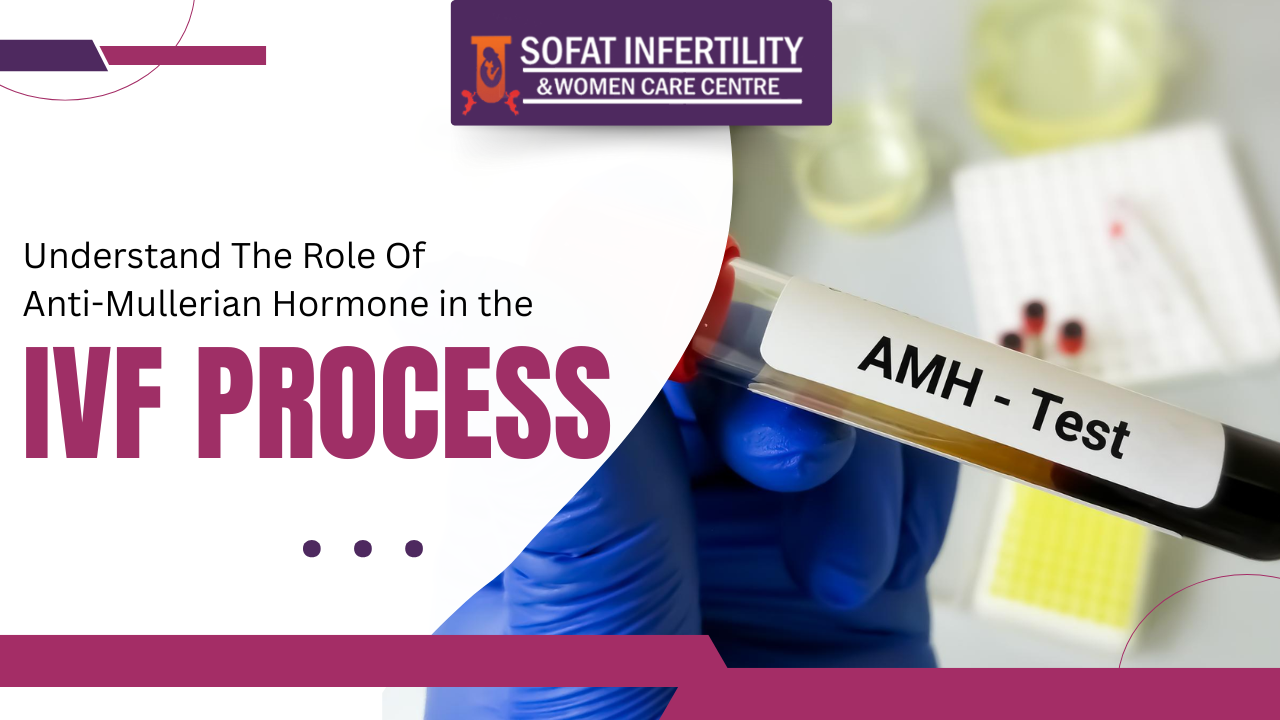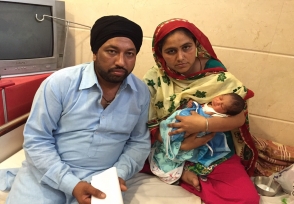A Complete In Vitro Fertilization (IVF) Guide at Sofat Infertility Centre
20% of couples are currently affected with infertility which is one of the leading causes of arguments in marriages. Infertility is a situation where a man or a woman can’t reproduce, in other words, a man can’t impregnate his wife or a woman can’t conceive.
Male and female infertility revolves around a number of factors that can be solved at our best IVF centre in Delhi in case a couple approaches us for consultation and treatment. Our fully equipped modern IVF centre holds a wide range of facilities aimed at solving couples’ infertility issues.

What is IVF?
Fully known as, In Vitro Fertilization, IVF comes from a Latin word ‘in vitro’, which means “in glass”. This indicates any scientific or biological experiments that are conducted in the laboratory within a test tube or a petri dish.
Therefore, In Vitro Fertilization is a form of Assisted Reproductive Technique (ART) where the male sperm is combined with a female egg to bring about fertilization in the laboratory.
This is a high-tech procedure prone to a variety of faults or mistakes in case poorly conducted. Therefore an advanced IVF centre with a fertility specialist and an embryologist must be selected.
About 1% babies are born out of IVF in the United States.
Candidates for IVF
Infertility is mainly the factor that will make a woman or a man opt for IVF treatment. Infertility factors include;
- Anovulation
- Blocked, damaged, or absence of Fallopian Tubes
- Endometriosis
- Extreme Fibroids & Polyps in the uterus
- PID
- Birth defects
- A previous infection
- Cervical mucus
- Vasectomy
- Low sperm count (oligospermia)
- Poor sperm motility and quality
- Genetic disorders
- Unexplained infertility
A couple must undergo an evaluation process to determine the main cause of infertility and in case no infertility source is ascertained, this is known as ‘Unexplained Infertility.’
An Overview of the IVF process
- Hormone therapy
- Ovarian stimulation
- Egg Retrieval
- Sperm collection
- Fertilization (laboratory)
- Embryo screening
- Embryo transfer
Extended IVF Process (PROCEDURE)
Hormone Therapy
Hormone Therapy to suppress the normal menstrual cycle is recommended for every woman to undergo IVF treatment. The hormone therapy will run for about 15 days and the hormones are either injected into the body or administered through nasal sprays after which a normal IVF procedure begins.
Ovarian Stimulation
The fertility expert may decide to put you on Clomid or Gonadotropin. These are fertility drugs to bring about follicular development in the ovaries to result into multiple eggs rather than one for the fertilization process.
A woman will be required to visit the fertility expert’s office every 3 days to have the blood hormone levels checked and ultrasound measurements of the ovaries.
Trigger Shot
A trigger shot is an injection that is administered 24 or 32 hours before the eggs are retrieved. This injection is intended to cause full development of the eggs (mature) after which the eggs are retrieved.
Egg Retrieval
Through a minimally invasive procedure, the eggs are retrieved under anesthesia. An ultrasound probe will be inserted into your vagina to identify the ovaries and the follicles after which a thin needle is inserted through the vagina wall remove the eggs. 8 to 15 eggs are removed and you may experience cramping and spotting after the procedure.
Sperm Collection
Your male partner will have to provide a sperm sample through masturbation or sperms can be surgically retrieved from him. In case this doesn’t work, donor sperm may be a solution.
Fertilization
The sperm will be washed and prepared by an embryologist. They will then be combined with the eggs to develop viable embryos. After fertilization occurs, the embryos are cultured for some time. This IVF procedure is different from the ICSI procedure in a way that in this technique, only a single sperm is injected into the egg for it to fertilize.
Embryo selection & Screening
Once the embryos have divided to about 10 cells, blastocytes will be formed and the embryologist will have to screen the embryos and select the most viable ones that can implant and develop for the 9 months.
The embryos will thoroughly be screened for any deformities, genetic defects among others.
Embryo Transfer
As the fertility expert may detect, 2 to 5 embryos may be transferred back to the woman’s uterus to increase the success chances. A catheter is placed in the cervix and the embryos are carefully introduced into the uterus.
Conception
After one or two weeks, blood tests and scans are conducted to ascertain whether an embryo had successfully implanted. In case the tests turn out to be positive, that means a woman is pregnant.

How Long does IVF treatment take?
A single IVF procedure may last for 5 or 6 weeks. Each step is carefully conducted and subsequent procedures like hormone therapy, fertility drugs, and checkups may take time.
The Cost of IVF treatment
At Sofat Infertility centre, we try to cut down the IVF cost as much as possible. We receive a large number of infertility couples only because we are a low cost IVF centre in Delhi and as well utilize standard protocols for higher success rates.
An overview of the IVF Cost at Sofat Infertility Centre
| Procedure | Single Treatment Cycle | Multiple Treatment Cycles | Discounts/Packages | Extra Charges in case |
|---|---|---|---|---|
| IVF | Between RS.1, 20, 000 to RS.2, 80, 000 | Between RS.2, 90, 000 to RS.5, 00, 000 | Applicable after in case of failed IVF treatment cycle or as otherwise | No estimation |
| Assisted Hatching | Between RS.50, 000 to Rs.70, 000 | Between RS. 80, 000 to RS. 1, 00, 000 | No Applied packages or discounts | No estimation |
| ICSI | Between Rs.1, 30, 000 to Rs. 3, 00, 000 | Between RS. 3, 00, 000 to Rs.5, 00, 000 | If otherwise | No estimation |
| Laparoscopic procedures | Between Rs. 30, 000 to RS. 50, 000 | Between RS. 50, 000 to RS. 80, 000 | No packages | No estimation |
Our Success Stories
Sofat Infertility Centre is an advanced infertility centre with about 75% success rate during the various infertility treatments. We refer to our centre as a “motherland” since many couples have achieved their dreams after successful infertility treatment, conception and delivery.
We fully follow advanced IVF practices to reduce the number of risks and bring about safe deliveries for our patients. Meet Dr. Sofat Sumita at our centre, the leading female fertility specialist in India.
Success chances with IVF
| Age | Success rate |
|---|---|
| 30 & Below | 33 to 80% |
| 31 to 35 | 30 to 60% |
| 36 to 37 | 27 to 50% |
| 38 to 40 | 24 to 40% |
| 41 to 43 | 18 to 39% |
| 45 and above | 10% |
IVF Risks
There are associated risks such as;
Multiple births, miscarriages, Ovary hyperstimulation, ectopic pregnancies, and uncertain reactions to fertility drugs.
These are fully put into consideration during treatment to prevent their effect on the mother and as well as the unborn baby.
How far is Sofat Infertility Centre from Delhi?
There are a number of transport alternatives through which a patient can reach our infertility expert and the team of fertility specialists at the centre.
They are;
By Train- that will only take you 5 hours and approximately 20 minutes to reach our infertility centre.
By Bus- this highly depends on the type of bus selected, but the average time will be 5 hours and 50 minutes or generally 6 hours.
By a flight- the duration will be only an hour and then approximately 25 minutes with a cab to the centre.
When you need infertility treatment to conceive
How to become pregnant
In order to conceive, a woman’s body parts must undergo following procedures:
Ovulation
To become pregnant, your ovaries must produce and release eggs that is called ovulation. Your clinician can test your menstrual cycles to determine ovulation.
Sperms
Healthy sperms are required for fertilization of eggs, which is not a problem until otherwise accident or surgeries happened. A clinician can conduct simple tests to check out the sperm quality of your partner.
Regular Sexual Activity
Regular sexual activity is important during fertilization period. Your specialist can suggest when you are fertile while cycle.
Open fallopian tubes and normal uterus
Fallopian tubes are essential in establishing a connection between egg and sperm. Uterus provides a healthy place for fertilized eggs to undergo the further development procedure
Possible causes of Infertility
Infertility has become a common issue among couples even after a prolong intimacy. Both male and female can suffer from infertility problems. The cases have been seen when both man and woman are found equally responsible for the pregnancy problems and in some, the causes are undetermined. Following are the possible causes of infertility in couples due to which females fail to conceive.
Age
Females have inborn quality to produce several eggs and with the passage of reproductive years, count and quality of eggs continue to decrease. The potential to conceive reduces by 3 to 5% after an age of 30 and the capability decreases much significantly after 40.
Non-functional Fallopian Tubes
The fallopian tubes may stop working because of damage that avoids the contact between eggs and sperms. The pelvic infections, endometriosis and pelvic surgeries are the possible causes to scar development and depletion of fallopian tubes in females.
Irregularity in hormones
Sometimes females have issues in ovulation. The hormonal variations cause to prevent an egg release from ovary and condensing of uterus lining in the development for egg fertilization. These complications can be found by basal body temperature graphs , ovulation predictor kits and blood test to analyze the hormone concentration.
Cervical Problems
Rare females may develop a cervical condition due to which sperm cannot travel across the cervical canal because of unwanted mucus formation or an earlier surgical treatment. The treatment is performed with intrauterine insemination.
Uterine
irregular uterus structure, development of polyps and fibroids
Undetermined causes
Sometimes why infertility occurs, is unknown, it happens almost 20% of couples.
For a successful pregnancy, each step of the reproduction process must occur in a correct manner to give birth to a healthy baby. But due to variety of pregnancy problems as stated above, complications occur while conceiving. The problems continue to hinder the reproduction process if they are left untreated therefore when a couple experiences problems rapidly, they must consult with a physician to help recognizing the possible cause and choose infertility/fertility treatment in Delhi to overcome the problems very soon. Here it is essential to bear in mind that there could be any kind of problem that restricts your reproduction capability, so you must handle it with courage and follow yours doctor’s advice strictly to achieve pregnancy within the shortest possible time.
Types of Ovulation Disorders And Their Treatment
Ovulation disorders prevent your capability to ovulate which is the potential cause of infertility among 25% couple who experience troubles in becoming parents. These disorders may be resulted by reproductive hormones irregularities by the hypothalamus or pituitary gland or troubles in the ovary itself. Possible ovulation disorders are:
Polycystic Ovary Syndrome
Also called as PCOS, under which the complications variations take place in the hypothalamus, pituitary gland and ovaries, causing abnormal hormone levels that blocks ovulation. This disorder is linked with insulin resistance, weight gain, anomalous hair development on face or body parts and acne. It is the most commonly found infertility cause in women.
Hypothalamous Malfunction
There are two kinds of hormones help in conducting monthly ovulation called follicle stimulating hormone and luteinizing hormone, these are developed by the pituitary gland in the definite pattern when a female is on her period. Extensive physical or mental stress, high or low bodyweight or a recent extensive change in weight can affect this process so as ovulation. The symptom of this disorder is irregular or no menstruation cycle at all.
Premature Ovarian Deficiency
This malfunction is resulted by autoimmune reaction under which female’s body erroneously hits the ovarian tissues or due to premature eggs loss from ovary because of genetic issues or medical treatment like chemotherapy. It causes lack in ability of ovary to develop eggs and reduced estrogen development at an age below 40.
Extensive Prolactin
Rarely, pituitary gland develops lots of prolactin that decreases the estrogen production and results in infertility problems. Generally it is because of flaws in pituitary gland however it can be caused by certain medication that are taken while the treatment of other diseases. We offer Treatments for Delhi. In Delhi you can get infertility treatment at any time. Contact us for query and we guide you all about your treatment process.
Latest Posts
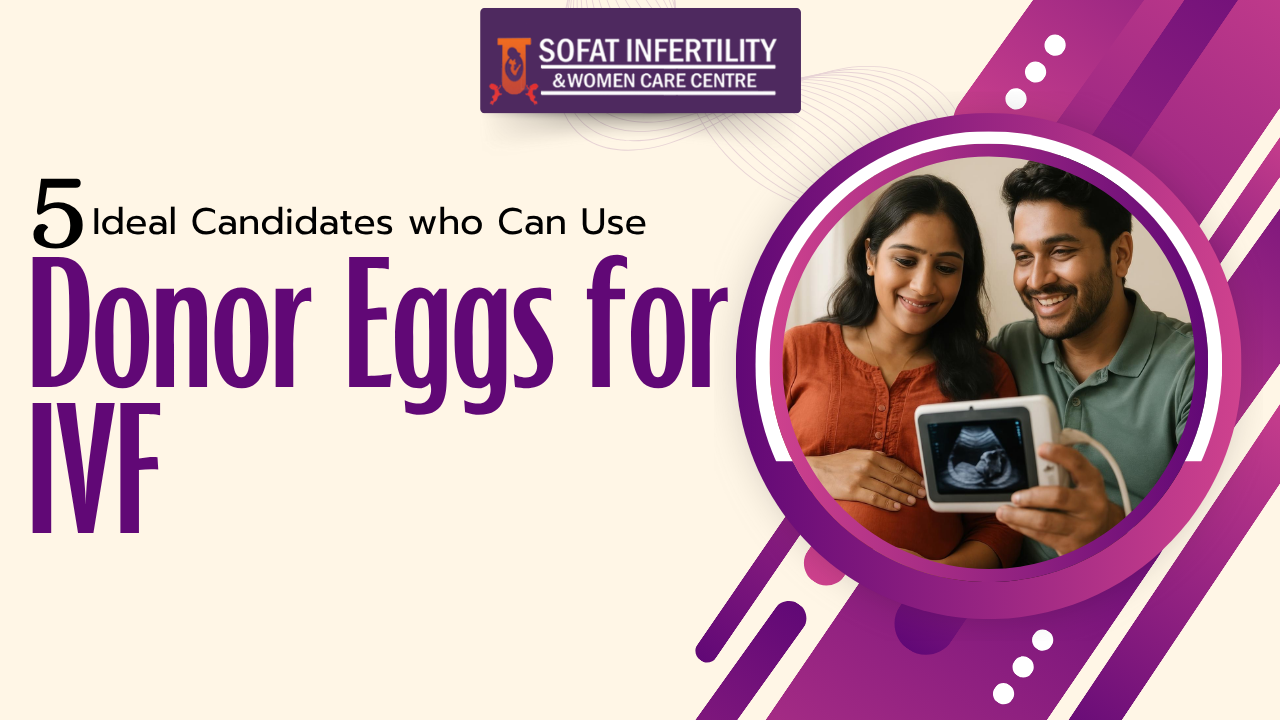
5 Ideal Candidates who Can Use Donor Eggs for IVF
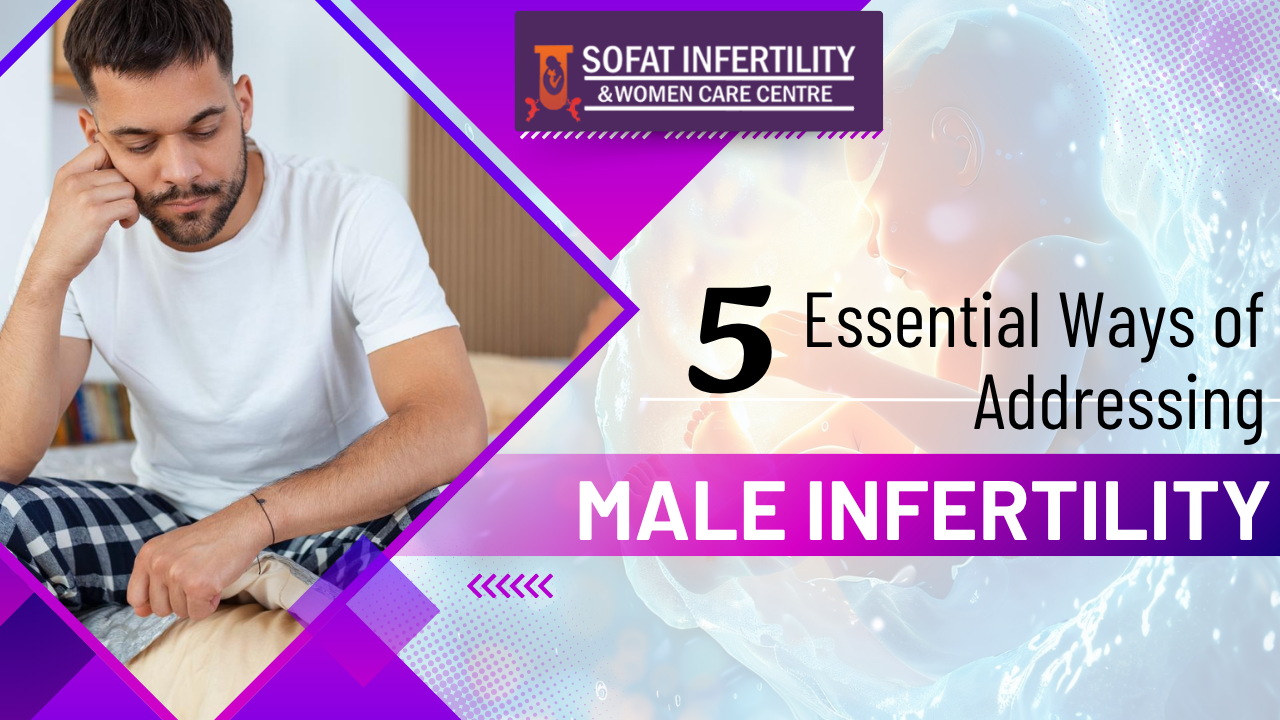
5 Essential Ways of Addressing Male Infertility
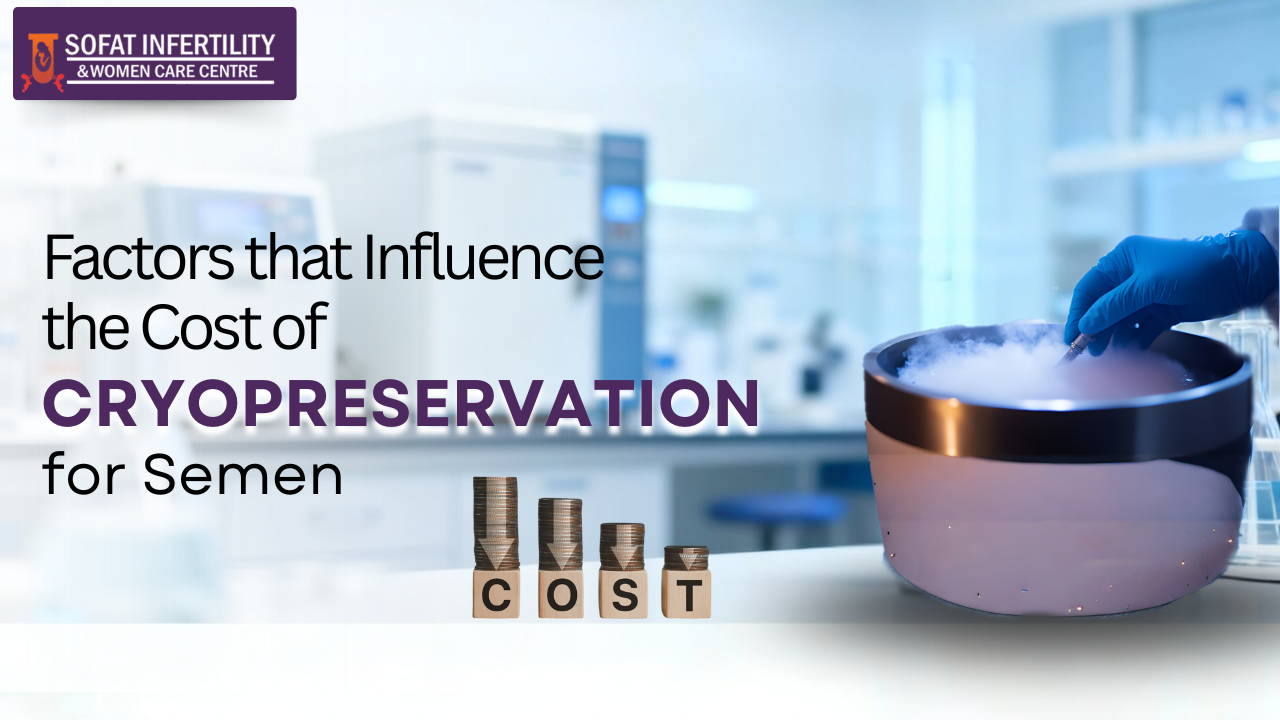
Factors that Influence the Cost of Cryopreservation for Semen
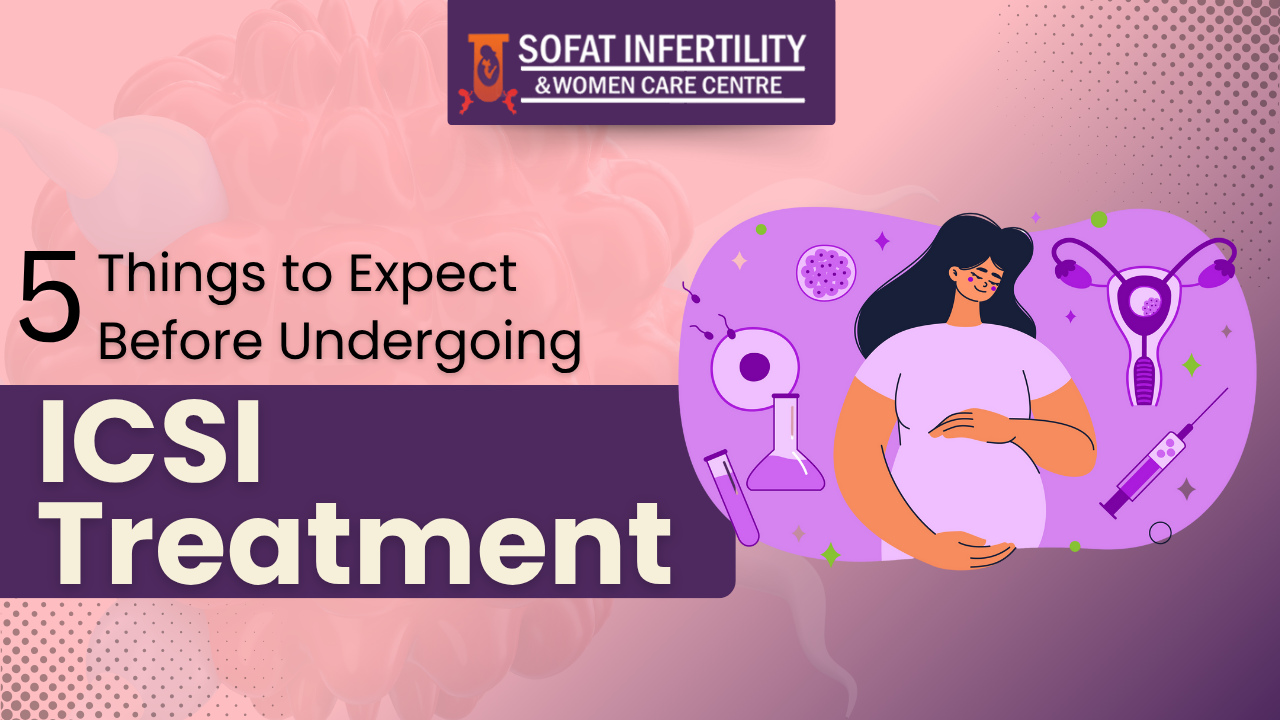
5 Things to Expect Before Undergoing ICSI Treatment
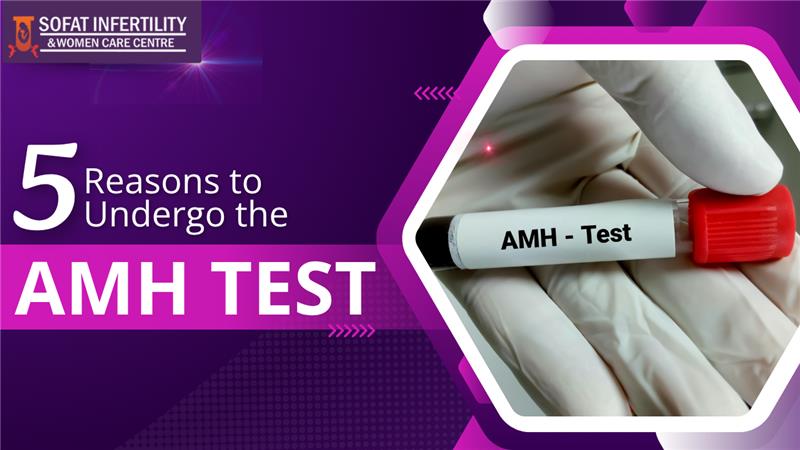
5 Reasons to Undergo the AMH Test
